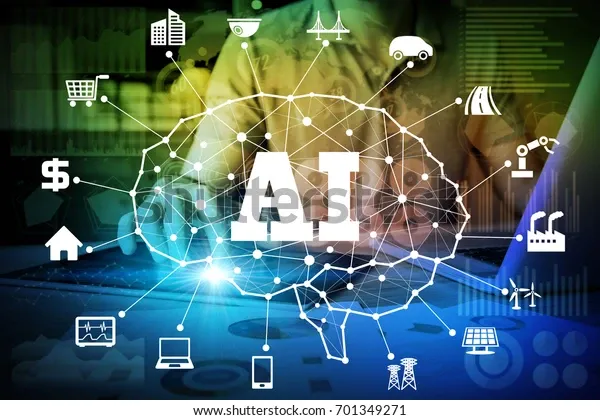Artificial Intelligence (AI) is the simulation of human intelligence. These processes include learning (the ability to improve performance on a specific task), reasoning (using the available evidence to make a decision), and self-correction. AI technology has advanced significantly in recent years and is being implemented in various fields such as healthcare, finance, transportation, and manufacturing. The potential benefits of AI are numerous, but the technology also raises ethical concerns about job displacement and privacy and training programs to help workers adapt to the changing job market.

Types of AI
Reactive machines: These are the simplest form of AI, and they are designed to react to specific situations based on pre-programmed rules. They have no memory and no ability to learn from experience.
Limited memory: These machines have a limited ability to remember past events and use that information to inform their current actions. They are used in applications such as self-driving cars, which need to remember previous road conditions to make decisions.
It is still in the early stages of development, but it has the potential to revolutionize the way we interact with machines.
Self-aware: This is the most advanced form of AI, and it refers to machines that have a sense of self-awareness and the ability to make decisions based on their own goals and motivations.
The Future of AI
On one hand, AI has the potential to transform many industries and improve our lives in countless ways. For example, AI could be used to develop new medical treatments, improve transportation, and make our cities more efficient.
On the other hand, there are also concerns about the impact of AI on jobs and society. As machines become increasingly capable of performing tasks that were once the exclusive domain of humans, there is a risk that many jobs will become obsolete. There is also a concern that AI could be used to create autonomous weapons or be used to monitor and control people.
Despite these concerns, the development of AI is likely to continue, driven by the increasing availability of data and computing power. As the technology advances, it will be important to consider the ethical and societal implications of AI and ensure that it is used in a way that benefits all of humanity.
AI and Society
On one hand, AI has the potential to improve our lives in countless ways, from making our cities more efficient to developing new medical treatments. On the other hand, there are also concerns about the impact of AI on jobs and privacy.
One of the most significant concerns is that AI could lead to widespread job displacement. As machines become increasingly capable of performing tasks that were once the exclusive domain of humans, there is a risk that many jobs will become obsolete. This could have a particularly negative impact on low-skilled workers, who may find it difficult to find new employment.
Another concern is the impact of AI on privacy. As machines become increasingly capable of monitoring and analyzing our behavior, there is a risk that our privacy will be compromised. There is also a concern that AI could be used to create autonomous weapons or be used to monitor and control people.
To address these concerns, it will be important to ensure that the development of AI is guided by a set of ethical principles that prioritize the well-being of society. This could include measures to protect privacy and ensure that the benefits of AI are distributed fairly. Additionally, it will be important to invest in education and training programs to help workers adapt to the changing job market.

